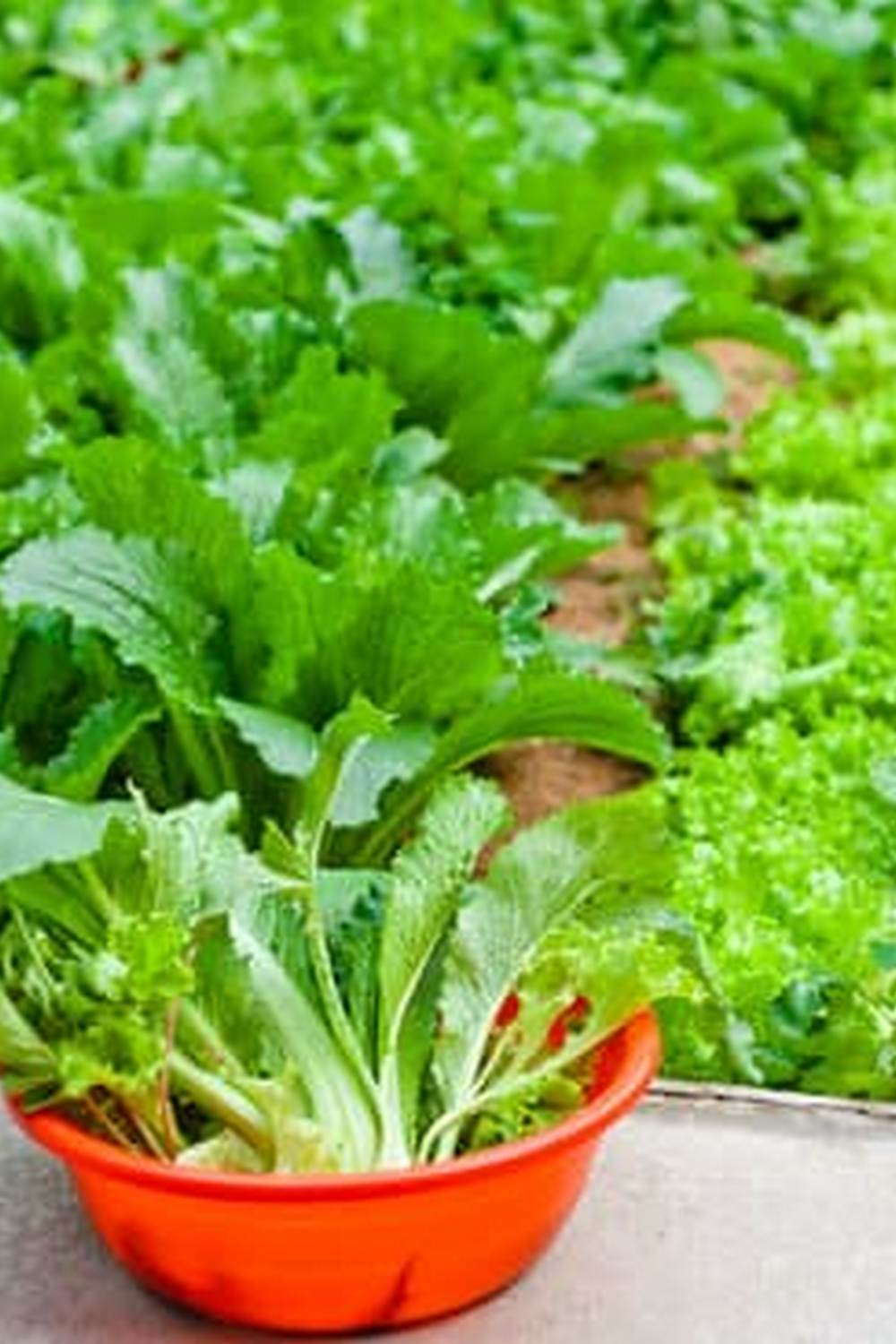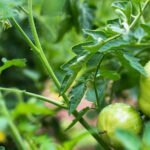When it comes to maintaining a healthy and thriving vegetable garden, weed control is crucial. Preen, a popular weed preventer, has garnered attention for its effectiveness in keeping gardens free from pesky weeds. But is Preen safe for vegetable gardens? Let’s delve into the world of Preen and explore its significance in gardening.
Preen is a pre-emergent herbicide that helps prevent weed seeds from germinating and taking over your vegetable garden. By creating a barrier on the soil surface, Preen stops weeds before they even have a chance to sprout, making it an invaluable tool for gardeners looking to maintain a weed-free environment. Many vegetable gardeners swear by the benefits of using Preen to keep their crops healthy and thriving.
One of the key advantages of using Preen in vegetable gardens is its ability to target weeds without harming your precious vegetable plants. Unlike traditional herbicides that can pose risks to your vegetables, Preen works specifically on weed seeds, giving your vegetables the space and nutrients they need to grow unhindered. Understanding how Preen functions to prevent weeds while ensuring the safety of your veggies is essential in maximizing its benefits in your garden.
Benefits of Using Preen in Vegetable Gardens
Preen is a popular pre-emergent herbicide that is widely used in gardens to prevent the growth of weeds. Its importance in gardening cannot be overstated, especially in vegetable gardens where the competition from weeds can hinder the growth and yield of crops. One of the primary benefits of using Preen in vegetable gardens is its ability to create a weed-free environment, allowing your vegetable plants to thrive without having to compete for nutrients, water, and sunlight.
Here are some key benefits of using Preen in your vegetable garden:
- Effective weed control: Preen acts as a barrier that inhibits the germination of weed seeds, preventing them from sprouting and competing with your vegetable plants.
- Time-saving solution: By applying Preen before weeds emerge, you can save time and effort on manual weeding throughout the growing season.
- Improved plant health: With fewer weeds around, your vegetable plants can access more resources and grow healthier, leading to better yields.
Furthermore, Preen is specifically designed to target weed seeds while being safe for use around established vegetables. This makes it an ideal option for gardeners looking for an effective weed control solution that won’t harm their edible crops. When applied correctly following the manufacturer’s instructions, Preen is considered safe for vegetable gardens and will not cause any harm to your plants or produce.
Remember to always read and follow the label instructions carefully when using any herbicide in your garden. By understanding how Preen works and its safety guidelines, you can enjoy a weed-free vegetable garden that thrives throughout the growing season.
How Preen Works to Prevent Weeds Without Harming Vegetable Plants
Preen is a popular weed control product that has gained recognition for its effectiveness in gardening. This innovative formula works by creating a barrier on the soil surface, preventing weed seeds from germinating and taking root. Preen accomplishes this by inhibiting cell division in the weed seedlings, ultimately stunting their growth and causing them to die off before becoming established plants.
When it comes to using Preen in vegetable gardens, many gardeners may wonder if it is safe for their crops. The good news is that Preen is specifically designed to target weeds while being safe for use around vegetables when applied correctly. The active ingredient in Preen, dithiopyr, breaks down quickly into non-toxic components, making it a preen safe for vegetable gardens option.
To ensure that Preen effectively prevents weeds without harming your vegetable plants, follow these steps for proper application:
- Prepare the area: Remove any existing weeds and loosen the soil.
- Apply Preen: Sprinkle the recommended amount of Preen evenly over the soil surface.
- Water thoroughly: Water the area after applying Preen to activate the product.
With proper application and care, using Preen in your vegetable garden can help you maintain a weed-free environment without compromising the health of your precious crops. By understanding how Preen works and following the recommended guidelines, you can enjoy a beautiful and productive garden all season long.
Understanding the Safety of Preen for Vegetable Gardens
Preen is a popular weed control product that many gardeners use to keep their garden beds free from weeds. But the burning question on many vegetable gardeners’ minds is whether Preen is safe for use in vegetable gardens. The good news is that when used properly, Preen can be a safe and effective tool for maintaining weed-free vegetable gardens.
How Preen Works Safely in Vegetable Gardens
Preen works by forming a weed-control barrier on the surface of the soil, preventing weed seeds from germinating. The active ingredient in Preen, trifluralin, targets the roots of germinating seeds, inhibiting their growth without affecting established plants like vegetables. This selective herbicide action allows vegetable plants to thrive while keeping weeds at bay.
Environmental Impact and Considerations
One important aspect to consider when using Preen in vegetable gardens is its impact on the environment. While Preen can help reduce the need for manual weeding and excessive use of traditional herbicides, it’s crucial to follow label instructions carefully to minimize any potential negative effects on beneficial insects, wildlife, or water sources.
Proper disposal of empty containers and adhering to recommended application rates are essential steps in ensuring that Preen remains a safe option for controlling weeds in vegetable gardens.
Step-by-Step Guide on How to Properly Apply Preen in Your Vegetable Garden
Preen is a popular pre-emergent herbicide that helps prevent weeds from growing in gardens, including vegetable gardens. When used correctly, Preen can be a valuable tool in maintaining a healthy and weed-free garden without harming your vegetable plants. One of the key benefits of using Preen is its ability to target weed seeds before they sprout, reducing the need for manual weeding and saving you time and effort in the long run.
To properly apply Preen in your vegetable garden, follow these steps:
1. Prepare the Area: Before applying Preen, make sure to remove any existing weeds from your garden bed. This will allow Preen to effectively target weed seeds without competition from already established weeds.
2. Apply Preen: Sprinkle a thin, even layer of Preen over the soil surface in your vegetable garden. Be careful not to oversaturate the area, as too much Preen can prevent vegetable seeds from germinating as well.
3. Water Thoroughly: After applying Preen, water your vegetable garden thoroughly to activate the herbicide and help it penetrate the soil where weed seeds may be lurking.
Following these steps will help ensure that Preen is properly applied in your vegetable garden, maximizing its effectiveness in preventing weeds while keeping your vegetable plants safe.
| Steps | Description |
|---|---|
| Prepare the Area | Remove existing weeds before applying. |
| Apply Preen | Evenly sprinkle Preen over the soil surface. |
| Water Thoroughly | After applying Preen, water your garden well. |
Tips and Tricks for Maximizing the Effectiveness of Preen in Vegetable Gardens
One of the key tips for maximizing the effectiveness of Preen in your vegetable garden is to apply it at the right time. It is best to apply Preen after you have prepared your garden bed and planted your vegetables, but before any weed seeds have germinated.
This ensures that Preen creates a barrier that prevents weeds from growing without affecting your already planted vegetable plants. Additionally, reapplying Preen every 9-12 weeks can help maintain weed control throughout the growing season.
Another useful tip is to read and follow the instructions on the Preen packaging carefully. Different formulations of Preen may have specific guidelines for application rates and timing, so it is essential to adhere to these recommendations for optimal results. Overapplication of Preen can potentially harm your vegetable plants, so using the correct amount based on the size of your garden is crucial.
Furthermore, consider combining mulching with Preen application for better weed control in your vegetable garden. Mulch not only helps retain moisture and moderate soil temperatures but also suppresses weed growth by blocking sunlight from reaching weed seeds. By using mulch in conjunction with Preen, you can create a more robust defense against weeds while keeping your vegetable plants healthy and thriving.
| Tips for Maximizing Effectiveness | Benefits |
|---|---|
| Apply Preen at the right time after planting vegetables | Prevents weed growth without harming plants |
| Follow instructions on packaging carefully | Optimal results and avoids plant damage |
| Combine mulching with Preen application | Better weed control and healthier vegetable plants |
Common Misconceptions About Using Preen in Vegetable Gardens
Myth: Preen Will Harm My Vegetable Plants
One common misconception about using Preen in vegetable gardens is the fear that it will harm the vegetable plants themselves. However, when used correctly according to the package instructions, Preen is safe for most vegetable garden plants. The active ingredient in Preen, trifluralin, targets weed seeds and seedlings by inhibiting their root development. This means that established vegetable plants are not affected by the product.
Myth: Preen Is Harmful to Pollinators and Beneficial Insects
Another myth surrounding the use of Preen in vegetable gardens is that it can be harmful to pollinators and beneficial insects. While it is important to be cautious with any pesticide or herbicide product in terms of its impact on non-target organisms, Preen has been found to have minimal impact on bees, butterflies, and other beneficial insects when used as directed.
To further minimize any potential risk, it is recommended to apply Preen early in the season before flowers bloom and pollinators become active.
Myth: Once I Use Preen, I Won’t Have to Pull Weeds Ever Again
It is a common misconception that using Preen in your vegetable garden once will eliminate the need for manual weeding forever. While Preen can significantly reduce weed growth and save you time and effort in maintaining your garden, it is not a one-time solution.
Some weed seeds may still find their way into your garden after applying Preen, especially if they are blown in by wind or carried by animals. Regularly checking for and removing any emerging weeds will help ensure the effectiveness of Preen over time.
Real-Life Success Stories of Vegetable Gardeners Who Have Used Preen Safely
As evidenced by the real-life success stories shared by vegetable gardeners who have used Preen safely, it is clear that this product is indeed safe and effective for maintaining weed-free gardens. These stories illustrate how Preen has helped these gardeners save time, effort, and resources while ensuring the health and productivity of their vegetable plants. By following the proper application steps and understanding the safety measures of Preen, these gardeners have achieved stunning results in their vegetable gardens.
One such success story comes from a home gardener who had struggled with persistent weeds overtaking her vegetable plots. After learning about Preen and its safety for vegetable gardens, she decided to give it a try.
Following the step-by-step guide provided, she applied Preen to her garden beds and was amazed at how effectively it prevented weed growth without causing any harm to her precious vegetables. Thanks to Preen, she was able to enjoy a thriving garden all season long without having to constantly battle stubborn weeds.
The experiences shared by these real-life success stories emphasize the importance of using products like Preen that are specifically designed to fulfill the needs of vegetable gardeners. With proper application techniques and adherence to safety guidelines, utilizing Preen in your own vegetable garden can lead to remarkable results.
So if you’re looking for a reliable and safe solution to weed control in your vegetable garden, consider giving Preen a try – you may just join the ranks of satisfied gardeners who have seen firsthand its effectiveness in maintaining healthy and vibrant vegetable plots.
Frequently Asked Questions
Is Preen Safe to Use in Vegetable Garden?
Preen is generally considered safe to use in a vegetable garden, as long as it is used according to the instructions on the label. It helps prevent weeds from growing, which can be beneficial for the overall health and growth of vegetables.
Is Preen Safe for Tomato Plants?
When it comes to tomato plants, using Preen should be done carefully. While Preen can be safe for tomato plants when used correctly, it’s important to apply it before planting or transplanting tomatoes. Make sure to read the label to ensure it won’t harm your tomato plants.
Can You Put Pre Emergent in Vegetable Garden?
Yes, you can put pre-emergent in a vegetable garden to help control weeds. By using pre-emergent herbicides like Preen in your vegetable garden, you can prevent weed seeds from germinating and competing with your vegetables for nutrients and water. Just be sure to follow application instructions carefully.

If you’re looking to get into vegetable gardening, or are just looking for some tips on how to make your current garden better, then you’ve come to the right place! My name is Ethel and I have been gardening for years. In this blog, I’m going to share with you some of my best tips on how to create a successful vegetable garden.





